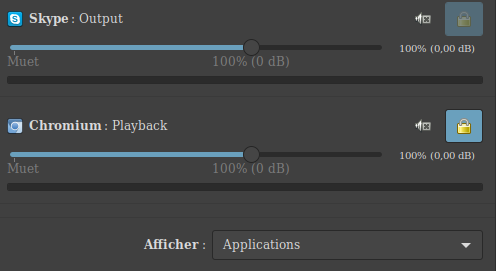-
Be
chevron_right
Contact publication
pubsub.kikeriki.at / bearblog · Thursday, 23 December, 2021 - 21:30 · 3 minutes
Following on from my post yesterday about an edge case in YouTube, I thought I’d write about a class of edge cases perhaps even more strange that I’ve been exploring recently:
<p>Following on from <a href="drinking-from-the-firehose-youtube-music">my post yesterday about an edge case in YouTube</a>, I thought I’d write about a class of edge cases perhaps even more strange that I’ve been exploring recently:</p> <p>Search engines are a fact of daily life for most of the population nowadays. Google (sub your preferred provider) is an extension of the brain, imagined as giving you access to the sum of the world’s information at the click of a button. But a search engine isn’t just a Ctrl-F for the internet with a nice interface and ads; rather it’s a tremendously complicated system with lots of features and interactions between those features. And all you need to explore the system yourself is some well-tuned search queries.</p> <p>I recently had an epiphany: search engines are designed to find you results for <em>something</em> and that’s a job they perform well. But there’s nothing stopping you from searching for <em>nothing</em>! And the search engines will still give you results!</p> <p>And what results they are - have a go on the links below:</p> <p>An empty query on DDG: <a href="https://duckduckgo.com/?q=%2B""">https://duckduckgo.com/?q=+””</a><br /> A different empty query on DDG: <a href="https://duckduckgo.com/?q=("")">https://duckduckgo.com/?q=(“”)</a><br /> An empty query on Google: <a href="https://www.google.com/search?q=("")">https://www.google.com/search?q=(“”)</a><br /> An empty query on Google News: <a href="https://www.google.com/search?q=%22%22&tbm=nws">https://www.google.com/search?q=”“&tbm=nws</a></p> <p>And have you ever thought about doing an <em>anything but</em> search? Normally you can add negations to the end of your search term to remove unwanted results, but there’s nothing stopping you from having a search term consisting entirely of negations!</p> <p>Here’s one on DDG: <a href="https://duckduckgo.com/?q=-"an+entirely+negated+query"">https://duckduckgo.com/?q=-“an entirely negated query”</a><br /> On Bing: <a href="https://www.bing.com/search?q=-%22an%2Bentirely%2Bnegated%2Bquery%22">https://www.bing.com/search?q=-“an entirely negated query”</a><br /> And on Google Books: <a href="https://www.google.com/search?q=-%22nothing%2Bto%2Bsee%2Bhere%22&tbm=bks">https://www.google.com/search?q=-“nothing to see here”&tbm=bks</a></p> <h2 id="commentary">Commentary</h2> <p>Google appears to have some half-effective filtering for these empty search queries so you’ll mostly get the same two YouTube videos as a result - is this an Easter egg? Although Google News and Books don’t have any filter, and you do get some odd results there!</p> <p>DuckDuckGo doesn’t appear to have any filtering at all, although it’s obvious just how much DDG relies on Bing’s whitelabel product for its results by looking at how similar the two are.</p> <p>If you can think of a deeper reason for these results, please do leave a comment and lets try and explain some of the mystery away.</p>
